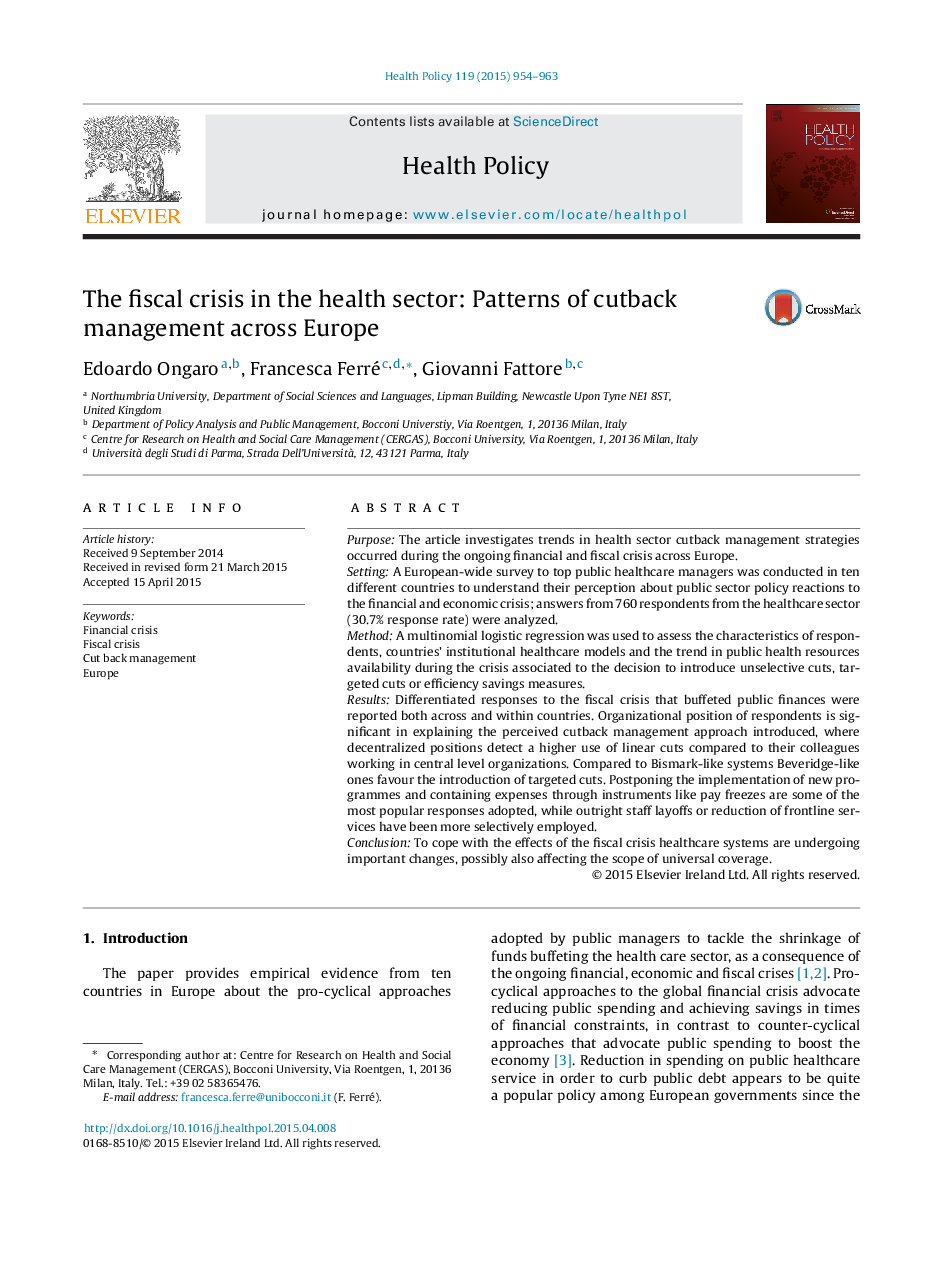| کد مقاله | کد نشریه | سال انتشار | مقاله انگلیسی | نسخه تمام متن |
|---|---|---|---|---|
| 6239307 | 1278992 | 2015 | 10 صفحه PDF | دانلود رایگان |
- Surveyed top European public healthcare managers on cut-back management used to cope fiscal crisis.
- 10 European countries included, full census strategy (30.7% response rate).
- Targeted and proportional cuts are popular approaches, followed by productivity and efficiency gains.
- Respondents in decentralized organizational positions detect a higher use of linear cuts compared to their colleagues working in central level organizations.
- The configuration of the country's health system is also relevant: Beveridge-like countries significantly favour the introduction of targeted cuts.
- The level of available resources in the country is linked to a preference for efficiency savings strategies.
PurposeThe article investigates trends in health sector cutback management strategies occurred during the ongoing financial and fiscal crisis across Europe.SettingA European-wide survey to top public healthcare managers was conducted in ten different countries to understand their perception about public sector policy reactions to the financial and economic crisis; answers from 760 respondents from the healthcare sector (30.7% response rate) were analyzed.MethodA multinomial logistic regression was used to assess the characteristics of respondents, countries' institutional healthcare models and the trend in public health resources availability during the crisis associated to the decision to introduce unselective cuts, targeted cuts or efficiency savings measures.ResultsDifferentiated responses to the fiscal crisis that buffeted public finances were reported both across and within countries. Organizational position of respondents is significant in explaining the perceived cutback management approach introduced, where decentralized positions detect a higher use of linear cuts compared to their colleagues working in central level organizations. Compared to Bismark-like systems Beveridge-like ones favour the introduction of targeted cuts. Postponing the implementation of new programmes and containing expenses through instruments like pay freezes are some of the most popular responses adopted, while outright staff layoffs or reduction of frontline services have been more selectively employed.ConclusionTo cope with the effects of the fiscal crisis healthcare systems are undergoing important changes, possibly also affecting the scope of universal coverage.
Journal: Health Policy - Volume 119, Issue 7, July 2015, Pages 954-963
